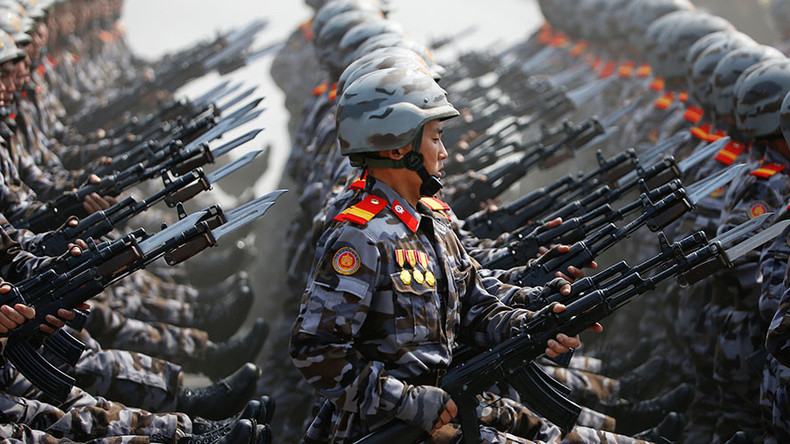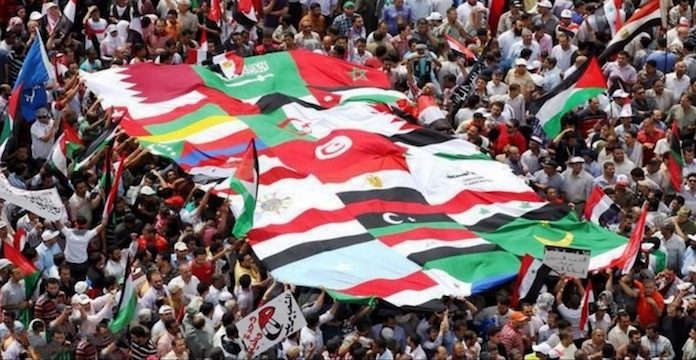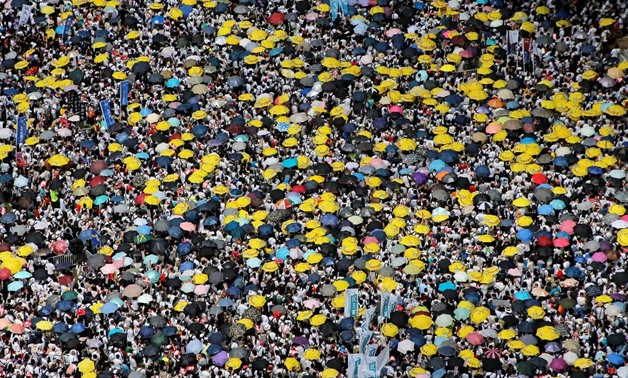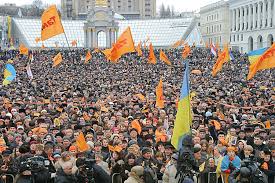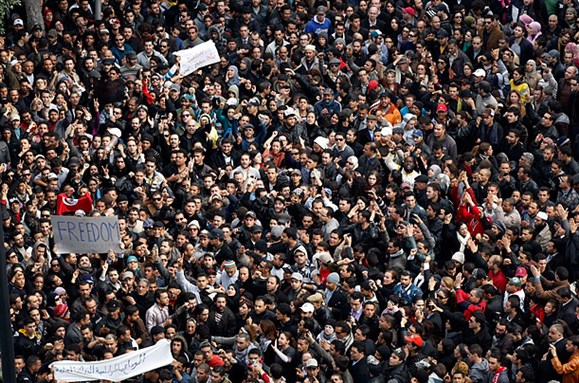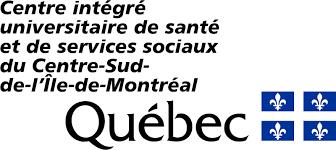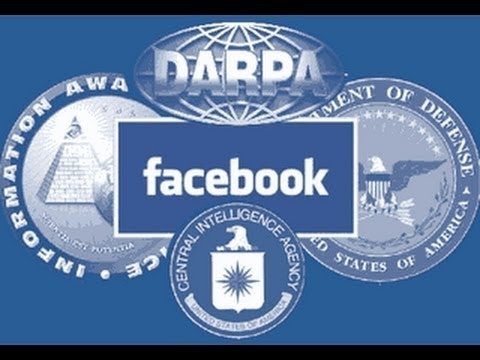Introduction

In the Ufa Summit, June 2015, the BRICS members reaffirmed their commitment for fighting corruption. Acknowledging that illicit money and corrupted financial flows in foreign jurisdictions is a global challenge that impacts negatively on sustainable development and economic growth, BRICS created the Anti-Corruption Working Group, for the inclusion of crime prevention and criminal justice issues among the long-term priorities of the United Nations agenda.
Since 2014, after the outcome of the Presidential elections, Brazil is struggling against one invisible enemy that succeeded in several important achievements since the beginning of what we could call the “Brazilian BRICS U-turn”. The country struggled against a strong foreign interference exposing the weakness of Brazilian political system and the impact of what we can call “vulnerability” into the BRICS project. Unable to counter the massive attack perpetrated against its institutional framework, Brazil lose a president, strong sympathetic of the BRICS project. Dilma Rousseff (PT), dismissed in 2016, was aimed by a controversial political charge empty of indictment1. This would be the first attack of a war that just begun, interposing the United States of America’s (USA) interests to the BRICS agenda.
This article looks for understanding how Brazil is working as a masterpiece of a bigger USA plan trying to destroy the BRICS project opposing Russia and China’s interested in a world where China gets more and more prominent influence through of the Occident.
We will try to analyze some topics on the “Declaration of the 11th BRICS Summit” face to the Brazilian post-coup d’état agenda. Our thesis is that Brazil is being used as a laboratory tool for mainly attack the BRICS project hitting collaterally Russia and China’s interested. That’s what we are trying to understand here.
Brazil and BRICS anti-corruption agenda.
The United Nations convention against corruption states in its Article 7:
Each State Party shall also consider taking appropriate legislative and administrative measures, consistent with the objectives of this Convention and in accordance with the fundamental principles of its domestic law, to enhance transparency in the funding of candidatures for elected public office and, where applicable, the funding of political parties2.
Based on their acknowledgment that illicit money and corrupted financial flows in foreign jurisdictions is a global challenge that impacts negatively on sustainable development and economic growth, in September 2015 the BRICS created the Anti-Corruption Working Group, for the inclusion of crime prevention and criminal justice issues among the long-term priorities of the United Nations agenda.
Brazil signed the United Nations Convention against Corruption and the Convention on Combating Bribery of Foreign Public Officials in International Business Transactions3. In 2013, Dilma Rousseff, Brazilian former president, sanctioned the Law 12,846 or Anti-Corruption Act (ACA) as part of the Workers Party’s policy in fighting corruption. The ACA specified that any non-incorporated business and incorporated, would be subject to up to $25 Million USD in fines per sanctions, violation, and liabilities4. Basically, the bill criminalized definitively the financial wrongdoers, complementing the older Brazilian legal framework. But what is the link between this law and the actual Brazilian context facing to the BRICS?
Corruption, including illicit money and financial flows, and ill-gotten wealth stashed in foreign jurisdictions, is a global challenge which may impact negatively on economic growth and sustainable development5
Another law, signed by Luis Inacio Lula da Silva, former president of Brazil would be in the middle of the Brazilian political crises. Sanctioned on July 30, 2010, at the end of his government, the Law 12,276 establish a new “regime de partilha” or “sharing regime” where only Petrobras, the Brazilian state oil company, would be granted to the right to explore and produce hydrocarbons in certain areas without having to go through a bidding procedure, after the findings of “pre-salt” oceanic oil layer, for what Brazil invested and developed technology for exploiting the oil in deeper oceanic waters.
On November 30, 2012, Rousseff sanctioned another law defining the distribution of petroleum royalties. Called Lei No. 12,734, this bill amended, among others, the “sharing regime” determining new rules for the distribution of royalties and special participation due to the exploration of oil and gas and improving the regulatory framework for the exploitation of these resources in the sharing regime.
The key point of this presidential sanction is a series of diplomatic documents from 2006, leaked by the Wikileaks and that come to public in 2011. In this cable, the USA’s Embassy in Brazil start a series of talks linking the USA’s Drug Enforcement Administration – DEA to one of the most influential Brazilian Senators, Jose Serra (PSDB), who would be defeated latter by Rousseff in the 2010 presidential elections.
The Brazilian Federal Executive Branch issued Decree No. 8,420 of 18 March 2015 (Anti-Corruption Decree), regulating, among other things, the sixteen criteria to be used by Brazilian authorities to assess anti-corruption compliance programs when enforcing the Anti-Corruption Law in administrative proceedings.6
Back to the BRICS context, after a very tide win during the Federal elections 2014, the first woman elected and reelected president of Brazil knew an intense undermining political process started by her opponent, Aecio Neves (PSDB) and his allies. The attack intensified after the Brazilian president vetoed a bill passed in the Brazilian Lower House trying to dodge a Brazilian Supreme Court decision (by eight votes in favor and three against) judging unconstitutional private companies founding in political campaigns7. Those initiatives were part of the Brazilian framework to align the country to BRICS anti-corruption resolutions. The Court judged illegal to private companies founding electoral campaigns in the country on September 17th, 2015. Within some days, the Lower House passed a new bill, calling “mini-reforma”, trying to dodge the Court’s decision, what have been vetoed by Roussef in September 29th, that year8. Some months after this, Rousseff start facing an impeachment trial in the same Lower House, led by Eduardo Cunha (PMDB), then speaker in that Chamber nowadays condemned for fifteen (15) years and four (4) months of prison. Cunha, a very close allied of Michel Temer (PMDB) – who succeeded Rousseff after her fall – and Aecio Neves (PSDB) was found guilty of corruption, money laundering and tax evasion in 2017, less than one year after dismissing Rouseeff9. On 29 January 2014, the Brazilian Anti-Corruption Law became effective. It stands clear that the Rousseff government was working hard to deliver the legal framework for answering to the BRICS anti-corruption agenda, nevertheless, she was not able to finish her second presidential term, as criminal implicated politicians interposed an impeachment process in her way, dismissing her in a political process, with no signs of wrongdoing by the Rousseff’s side10.
Since then, several factors affected directly the Brazilian economy and created an enormous embarrassment for Brazil and its counterparts. The Brazilian finding of the “Pre-salt” oil layer in the oceanic deep waters, the countries’ technological development that made it possible to explore this resource and the creation of a legal framework for stopping financial crimes and private founding of political campaigns has been sowed as a major aim for the USA geopolitics. Remembering the Declaration of the 11th BRICS summit:
We reaffirm our commitment to fight corruption, inter alia, through the strengthening of domestic legal frameworks, as appropriate, to more effectively address cases of corruption11.
Security

Security is one of the most sensible matters in the BRICS context, the historical singularities and cultural context within each one of the countries is inserted, as well as the geopolitical context and interests make some of main security concerns an extremely sensible issue, since the ideological alignment of Brazil, specifically after the 2016 coup d’état orchestrated against Dilma Rousseff, with full interference and support of the United States’ State Department. It puts the other members interests in direct conflict with the Brazilian position, specifically Russia and China’s.
It’s important to take into consideration that the Brazilian leadership played an important role into the BRICS project consolidation, during the time the country founded itself under Workers’ Party government, what happened from 2003 until 2016. It won’t be wrong to say that one of the reasons that drove USA to interfere in the Brazilian internal issues was, very probably, the edge of the BRICS institutionalization, celebrated with the ratification of the BDB and its institutional framework. Back to the Lopes da Cunha considerations:
The disparity of power resources of members causes different perceptions and responsibilities. Russia and China are nuclear powers and have a permanent seat on the United Nations Security Council, while India, which also has nuclear weapons, is not a permanent member of the United Nations Security Council (UNSC), but along with Brazil and the United Nations. South Africa aspires to such a position in the United Nations. In addition, each of these states has differentiated relationships with security, largely due to their respective geographic surroundings12 (Lopes da Cunha: 113)
The BRICS countries S&T development priorities, as per the 6th International Conference on Future-Oriented Technology Analysis (FTA) would be: information and communication technologies; nanotechnology, and next-generation materials; advanced production technologies, and robotics; space systems, and astronomical observations; transport systems; energy efficiency and energy saving; nuclear energy; renewable energy sources; exploration, prospecting, developing, and mining of natural resources; climate change, environment protection,, managing natural disasters; water resources, and their usage; food security, and sustainable agriculture; health and medicine &; biotechnology13.
These development priorities are the main S&T fields in which countries should invest for obtaining the best contribution to solving wide range of social and economic problems in medium to long term. They could contribute to the countries’ economic growth, helping to solve social problems, as well as contributing in many technological security issues. We know technological security issues are one of the main strategic problems to be solved, for guarantying sovereignty and governance to countries. The main issues behind their implementation are: “availability of relevant production facilities and equipment; availability of financial resources; human resources &; availability of S&T groundwork results”14.
We still need to understand what the relation between the very convenient and timely coup d’état that is unsettling all the strategic Brazilian assets and transferring sovereignty from the Brazilian executive branch to the hands of USA aligned companies.
Brazil counts nowadays with at least two rebel courts in the States of Parana and Rio Grande do Sul. These two rebel judicial institutions do not respect the Brazilian legal framework, prosecuting members of the Workers Party, applying a truly exception law fare against every leftist leadership in the Brazilian political context. The first and major aim of this terror court is the Brazilian former president, Luis Inacio Lula da Silva condemned in a prosecution completely empty of proofs, about a Flat in the Guaruja’s beach in the Sao Paulo State. But, the flat in question was registered and offer in grant to the Brazilian Federal Bank Caixa Economica Federal by OAS Empreendimentos, in a way that it was impossible for the president to have any relation of possession with this asset. During the process, several witnesses discharged M da Silva, but the then judge Sergio Moro, insisted in condemning the former president, opening the way for the election of Jair Bolsonaro. In this government Sergio Moro became the Minister of Justice.
After the Brazilian 2018 federal elections, several scandals leaked relating Bolsonaro with paramilitary militias, including the slaughtering of Marielle Franco, prominent Counselor in the Rio de Janeiro Town House. In this last case, one witness directly mentioned Bolsonaro who was with the assassin hours before Marielle Franco being slaughtered.
The Brazilian media – especially Rede Globo, a media empire linked with the Brazilian fascist dictatorship – is working hard to set a smoke curtains for confounding the public opinion while Bolsonaro delivers one by one all the strategic Brazilian assets that could somehow strengthen the BRICS project. It lets no doubts that the Brazilian 2016 coup d’état and the controversial arrest of former president Lula was planned to destroy the BRICS project and make Russia and China more vulnerable to the USA attacks.
Civil aviation
One of the first measures adopted by Bolsonaro delivers EMBRAER, the Brazilian civil and military aviation company, to the USA’s control. At the same time, the site of satellites launching known as Alcantara’s base has been deliver to the American interest too. It’s important to remember that Boeing, the American aviation company had serious issues with one of its main aircraft, situation that could potentially strength BRICS aviation market. The Bolsonaro’s decision on EMBRAER destroy completely all the Brazilian aviation sector, delivering to the USA the full control over all the company’s areas15.
We recall the BRICS MOU on Regional Aviation and value the cooperation among BRICS countries in the field of civil aviation. Acknowledging the critical role played by the aviation sector in emerging markets, including in BRICS countries, and considering the potential impacts of the Carbon Offsetting and Reduction Scheme for International Aviation (CORSIA) on the growth of the aviation sector, we reiterate our commitment to work together on the review process of the framework16.
First BRICS institution
BRICS clearly advocates a stronger voice for emerging countries in the international system. At same time, the group recognizes its importance to maintain the stability and rules-based order that fosters prosperity in the international system. BDB – BRICS development Bank was created in 2013, becoming, with the Contingent fee arrangement (CFA) the first BRICS’ international institution with legal personality, ratified in Ufa, 2015. As exposed by Guilherme Lopes da Cunha:
Finance makes up a very proactive face of the BRICS. Headquartered in Shanghai, BDB provides funding for projects that favor the sustainable development of undersea economies. An example of such a proposal is the mentioned ACR, which aims to make resources available to member countries that present a risk of instability of payments17.
One of the main projects of Bolsonaro agenda is to privatize the Banco do Brasil, a Brazilian federal bank.
Energy
In November 2019, Bolsonaro authorized the privatization of ELETROBRAS, the Brazilian power company, the largest Latina America’s utility18.
We acknowledge the crucial role of energy in promoting social and economic development, as well as environmental protection. While recognizing that the energy transition of each country is unique according to national circumstances, we underscore the importance of securing access to clean, sustainable, affordable energy to our populations. In this regard, diversification of energy sources is paramount to achieve energy security19.
Cinema
Another part of the BRICS agenda, the Brazilian films production is under a strong attack since Bolsonaro acceded to the power. Ancine, the Brazilian cinema agency, “which many see as a crucial support structure for Brazil’s nascent independent cinema, has also been dramatically weakened under Bolsonaro” who reduce its budget by nearly half, handicapping its financing activities20.
We look forward to continued collaboration on cultural affairs, including the initiative on BRICS films and film productions. We commend the organization of the 4th BRICS Film Festival21.
Basic Sanitation
Wednesday December 11th, 2019, the Lower House of Representatives approved by 276 votes to 124 the text of the new Basic Sanitation Legal Framework, which paves the way to the privatization of the exploitation of water and sewage services in Brazilian cities.
We underline the importance of BRICS environmental cooperation initiatives that contribute to the quality of life in our cities through the sharing of knowledge and experience on important issues such as […] sanitation and water quality22.
Fake news
On November 5th, the former government leader in Congress, Rep. Joice Hasselmann (PSL-SP) denounced the existence of a “digital militia” to spread threats and attacks on the reputation of Bolsonaro’s government critics. At the head of what she calls “criminal organization” two sons of the President, the Congressman Eduardo Bolsonaro (PSL-SP) and the Rio de Janeiro City Councilor Carlos Bolsonaro, as well as other state parliamentarians and their advisers. In a statement to the “CPI of Fake New”, Hasselmann said the “militia” acts mostly in closed social networking groups, especially on Instagram and Signal.
We underscore the importance of an open, secure, peaceful, stable, accessible and non-discriminatory environment for information and communications technologies (ICTs)23.
Terrorism
Bolsonaro is known for his strong links with rebel militias operating in Rio de Janeiro zone, remembering that 39 Kg of cocaine has been found in the presidential aircraft24 and 117 (on hundred seventeen) M16 rifles were found in his neighbor’s house, Ronie Lessa, close friend of the president’s family and implicated in the slaughtering of Marielle Franco, a Rio de Janeiro City Councilor25. During the electoral campaign, Bolsonaro stated in several time that he would “kill communists if elected President”.
We condemn terrorism in all its forms and manifestations, which should not be associated with any religion, nationality or civilization, and recognize terrorist acts as criminal and unjustifiable, regardless of their motivations whenever, wherever and by whomsoever committed.26.
Conclusion
We can conclude that in terms of BRICS anti-corruption policy, Brazil has been aimed by internal agents, involved with USA’s institutions what attacked directly the BRICS interests. A more deep and elaborate research could take part for trying to understand the real implications of the USA in this matter, since it stands clear that the close alignment of Brazilian Workers Party government with the BRICS agenda bothered the USA’s administration to the point to trigger a new coup d’état against the country.
We reported here only some of the very widespread pattern of attacks to the BRICS priorities that Bolsonaro is driving in Brazil. It stands clear that the only project Bolsonaro’s government has is attacking all the Brazilian framework and infrastructure focusing in the BRICS project. It stands clear that his agenda is an anti-China and Russia agenda answering 100% of the American’s interests in undermining the BRICS, Chinese and Russian economic and social developments. We have NO DOUBTS that Brazil is being used as a laboratory in Information Communication’s Tecnologies – ICTs aiming in a further attack against Russian and Chinese institutions, as we already can see happening in Hong Kong.
It’s urgent that the two main BRICS powerful nations act in confronting the Bolsonaro agenda with intelligence service and localized military actions looking for neutralizing the Bolsonaro founding. As we saw before, in the 60s, the standing longtime of the Brazilian dictatorship served as a laboratory to the USA, helping the country to undermine the Soviet System bringing the fall of URSS and the destruction of the institutional Soviet framework. It’s essential, if the two main BRICS powers want to perpetrate the BRICS project that they act for neutralizing Bolsonaro threat as a truly and direct enemy of the BRICS project and principally of the Chinese and Russian people. We have no pleasure in concluding this report telling that the USA is pushing the world through a bigger wide conflict and it looks not have any solutions as the country do not respect the limits in the international framework anymore.
Bibliography
BBC News, «Brazil ex-speaker Eduardo Cunha jailed for 15 years», Brazil political crisis, 2017, online, https://www.bbc.com/news/world-latin-america-39442005, consulted December 4, 2019.
CBC, Boeing buys 80% of Embraer’s commercial aircraft operations for $4.2B, Business, online, https://www.cbc.ca/news/business/boeing-embraer-aircraft-1.4948894, consulted December 14, 2019.
CBC, Boeing buys 80% of Embraer’s commercial aircraft operations for $4.2B, Business, online, https://www.cbc.ca/news/business/boeing-embraer-aircraft-1.4948894, consulted December 14, 2019.
CNBC, «Brazil President Jair Bolsonaro signs bill for privatization of power company, Latin America’s largest utility», Wires, online, https://www.cnbc.com/2019/11/05/reuters-america-brazil-president-jair-bolsonaro-signs-bill-for-privatization-of-power-company-eletrobras-latin-americas-largest-utility.html, consulted December 14, 2019.
CNN, «Officer traveling with Brazilian president Bolsonaro caught with 39 kilos of cocaine», online, https://edition.cnn.com/2019/06/26/americas/brazil-officer-cocaine-g20-intl/index.html, Consulted December 7, 2019.
Lopes da Cunha, Guilherme, «As relaçoes Brasil-China: Ciência, Tecnologia e Inovaçao no século XXI», UFRJ, 2017.
Kurakin, Alexey, & Sukharenko, Alexander, «Anti-corruption in the BRICS countries», BRICS Law Journal, Volume V, 2018.
President of Russia, «Declaration of the 11th BRICS Summit», online, http://en.kremlin.ru/supplement/5458, 2019, Consulted December 10, 2019.
Reuters, «Brazil’s top court bans corporate money in election campaigns», World News, 2015, online, https://www.reuters.com/article/us-brazil-politics-financing-idUSKCN0RH33A20150917, consulted December 1st, 2019.
Senado Federal, «Presidente Dilma não cometeu qualquer crime que justifique o impeachment, afirmam juristas», 2016, online, < https://www12.senado.leg.br/noticias/materias/2016/05/03/presidente-dilma-nao-cometeu-qualquer-crime-que-justifique-o-impeachment-afirmam-juristas>, Consulted, December 2, 2019
Sheppard Mullin, «The Brazilian Anti-Corruption Act of 2013 (Act # 12846)», FCPA and Anti-Corruption, 2014, on line, https://www.globaltradelawblog.com/2014/02/06/the-brazilian-anti-corruption-act-of-2013-act-12846/, consulted December 5, 2019.
Sokolov, A.; Shashnov, S.; Kotsemir, M. & Grebenyuk, A., «Commons STI priorities for a group of countries: the BRICS case», 6th International Conference on Future-Oriented Technology Analysis (FTA) – Future in the Making, Brussels, 2018.
Sputinik Brazil, «Polícia apreende peças de 117 fuzis M-16 na casa de amigo do acusado de atirar em Marielle», 2019, on line, https://br.sputniknews.com/brasil/2019031213481740-policia-encontra-fuzis-casa-amigo-suspeito-marielle-m16/, Consulted December 8, 2019.
Tha guardian, « ‘The government is strangling cinema’: Brazil film industry fights for survival», Brazil, 2019, online, https://www.theguardian.com/world/2019/dec/09/brazil-rio-international-film-festival-bolsonaro-fight-survival, consulted December 9, 2019.
United Nations, «United Nations Convention against Corruption», UN office on drugs and crime, 2004, online, https://www.unodc.org/documents/brussels/UN_Convention_Against_Corruption.pdf, consulted December 1, 2019.
Veja, «Dilma veta doação eleitoral de empresas e voto impresso», Brasil, 2015, online, https://veja.abril.com.br/brasil/dilma-veta-doacao-eleitoral-de-empresas-e-voto-impresso/, consulted December 2, 2019.


